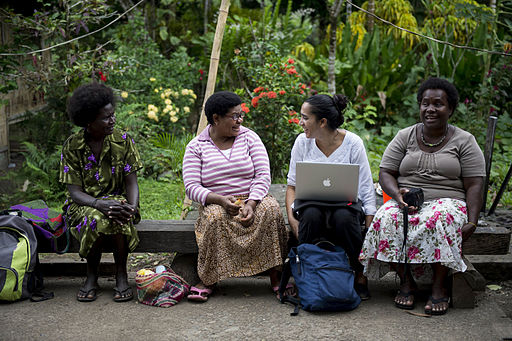
Country of origin: Australia
Year came to U.S.: 1941
Education: high school
Organization: Counterpart International (1965, originally Foundation for the Peoples of the South Pacific)
Headquarters: Arlington, VA
2023 revenue: $51.7 million
Worldwide employment: 687

Silverstein was an actress-turned-humanitarian whose Hollywood networks helped to fund her foundation.
Foundation for the Peoples of the South Pacific evolved into Counterpart International, which broadened the geographical scope of its work.
Biography
“Betty taught us humility and reminded us that we learned far more from people we ‘helped’ than we ever taught them.” –Lelei TuiSamoa LeLaulu, former President and CEO, Counterpart International
Before Audrey Hepburn and Angelina Jolie, there was Elizabeth Silverstein. The England-born Australian actress of films like Forty Thousand Horsemen was known as much for her pet name “Betty” as for the title bequeathed by humanitarian organizations, “Red Cross Queen.”
Silverstein grew up on a farm in pre-World War II Australia. Her love of people and the stage, however, drew her into show business. By her late-teens, she was a film, radio and stage actress. Her humanitarian nickname arose out of her tireless fundraising and travelling to visit Australian troops stationed overseas. Her marriage to a Metro-Goldwyn-Mayer (MGM) director, Maurice “Red” Silverstein, in 1941 brought her to the U.S. where both of their careers catapulted. “Red” became president of MGM International and “Betty” scored an acting contract with Universal studios.
Soon, however, she would find her calling in philanthropy. In 1963, the Silversteins were exposed to the work of Marist Catholic priests in the South Pacific where medical facilities were needed following the War. The Silversteins were so moved by the islanders’ plight that, in 1965, they started the Foundation for the Peoples of the South Pacific.
Silverstein supported the Foundation through her lucrative networks in Hollywood. (Its gala launch was hosted by Sophia Loren.) She also travelled regularly to speak with government and business leaders in the U.S. and Australia to raise funds for the improved medical, educational, agricultural and business needs of the South Pacific islands.
By the 1990s, the organization was renamed Counterpart International and expanded its operations to include newly independent states following the breakup of the Soviet Union. Counterpart then began helping to build, mentor and partner with civil society organizations, small businesses and municipalities that needed social and economic development. In 2017, Counterpart provided assistance to 4,544 organizations in 28 countries and reached more than 1 million people through trainings, technical assistance, training and food distribution programs. During the COVID-19 crisis, they launched programs to help in 11 countries that were considered were considered fragile, conflict-affected environments.
To discover more accomplished female immigrants, read the blog post Eight Famous Women Immigrants in the United States.
Updated September 2024
